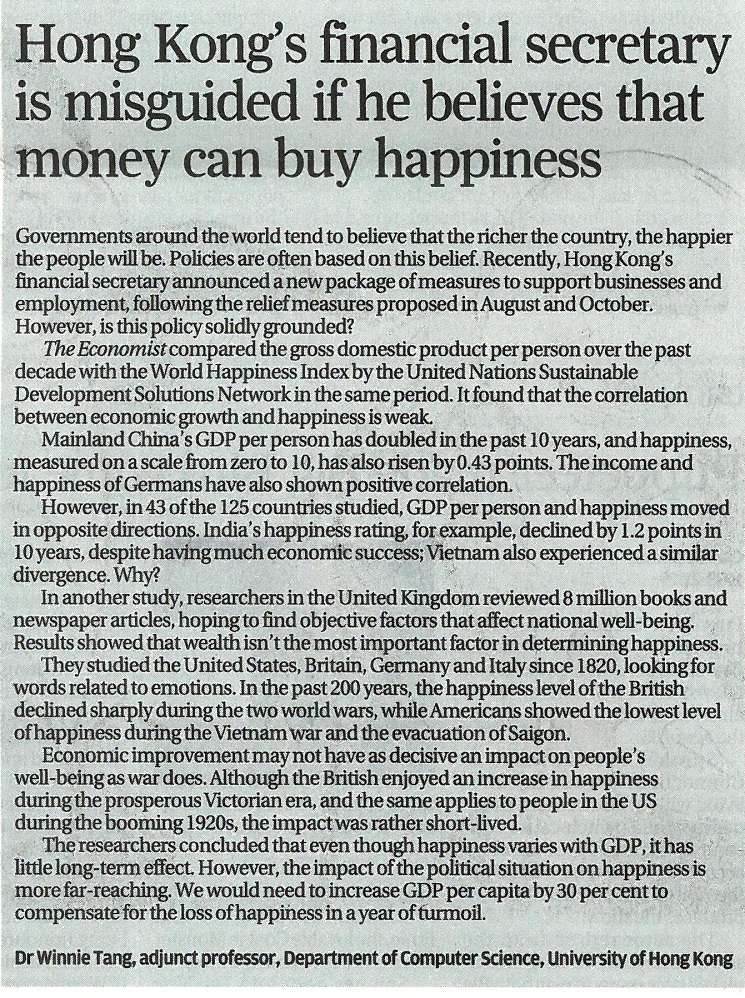網上版請按此

Hong Kong's financial secretary is misguided if he thinks money can buy happiness
Governments around the world tend to believe that the richer the country, the happier the people will be. Policies are often based on this belief. Recently, Hong Kong's financial secretary announced a new package of measures to support businesses and employment, following the relief measures proposed in August and October. However, is this policy solidly grounded?
The Economist compares the gross domestic product per person over the past decade with the World Happiness Index by the United Nations Sustainable Development Solutions Network in the same period. It found that the correlation between economic growth and happiness is weak.
Mainland China's GDP per person has doubled in the past 10 years, and happiness, measured on a scale from zero to 10, has also risen by 0.43 points. The income and happiness of Germans have also shown positive correlation.
However, in 43 of the 125 countries studied, GDP per person and happiness move in opposite directions. India's happiness rating, for example, declined by 1.2 points in 10 years despite having much economic success; Vietnam also experiences a similar divergence. Why?
In another study, researchers in the United Kingdom reviewed 8 million books and newspapers articles, hoping to find objective factors that affect national well-being. Results show that wealth is not the most important factor in determining happiness.
They studied the United States, Britain, Germany and Italy since 1820, looking for words to emotions. In the past 200 years, the happiness level of the British declined sharply during the two world wars, while Americans showed the lowest level of happiness during the Vietnam war and the evacuation of Saigon.
Economic improvement may not have as decisive an impact on people's well-being as war does. Although the British enjoyed an increase in happiness during the prosperous Victorian era, and the same applies to people in the US during the booming 1920s, the impact was rather short-lived.
The researchers concluded that even though happiness varies with GDP, it has little long-term effect. However, the impact of the political situation on happiness is more far-reaching. We would need to increase GDP per capita by 30 per cent to compensate for the loss of happiness in a year of turmoil.
Dr. Winnie Tang
Adjunct Professor, Department of Computer Science, Faculty of Engineering and Faculty of Architecture, The University of Hong Kong